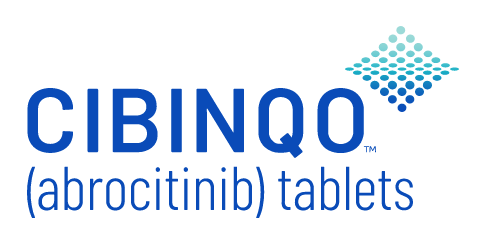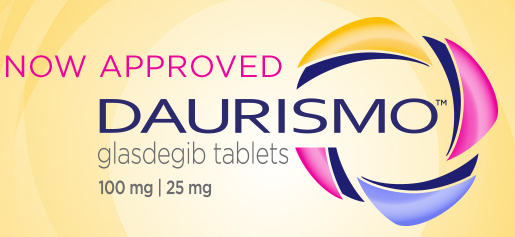Drug Approvals
I have worked on the eight new investigational compounds which have been approved by the FDA. My contributions to the approval of these treatments includes authoring submission components for seven of the submissions.
VELSIPITY® (etrasimod)
FDA approval: November 2023
Indication: moderate to severely active ulcerative colitis.
My role: Pharmacometrics Lead for the program.

CIBINQO® (abrocitinib)
FDA approval: January 2022
Indication: moderate-to-severe atopic dermatitis in adults.
My role: Pharmacometrics lead for the program.
Platelet Modeling: DOI: https://doi.org/doi:10.1111/bcp.15334
Population PK: DOI: https://doi.org/10.1007/s40262-021-01104-z

DAURISMO® (glasdegib)
FDA approval: December 2018
Indication:For use in combination treatment of adult patients ≥75 years with newly-diagnosed acute myeloid leukemia (AML).
Published Contribution: “Exposure response modeling of the effect of glasdegib on cardiac repolarization in cancer patients.” Fostvedt, L., Shaik, N., Martinelli, G., Wagner, A., Ruiz-Garcia, A., Expert Review of Clinical Pharmacology, Volume 14, Number 9, 927-935, 2021
DOI: https://doi.org/10.1080/17512433.2021.1925538

VIZIMPRO® (dacomitinib)
FDA approval: September 2018
Indication: First-line EGFR-mutant non small cell lung cancer
Vizimpro (dacomitinib) is an oral, once-daily, irreversible pan-human epidermal growth factor receptor tyrosine kinase inhibitor (TKI) indicated for the treatment of metastatic non-small cell lung cancer (NSCLC) with epidermal growth factor receptor (EGFR) exon 19 deletion or exon 21 L858R substitution mutations as detected by an FDA-approved test.
Published Contribution: “Tumor growth inhibition modeling to support the starting dose of dacomitinib“. Fostvedt, LK., Nickens, DJ., Tan, Weiwei., Parivar, K. Clinical Pharmacology and Therapeutics: P&SP, 2022
DOI: https://doi.org/10.1002/psp4.12841

LORBRENA® (lorlatinib)
FDA Approval: August 2018
Indication: Anaplastic lymphoma kinase (ALK)-positive metastatic non-small cell lung cancer (NSCLC) whose disease has progressed on: crizotinib and at least one other ALK inhibitor for metastatic disease; or alectinib as the first ALK inhibitor therapy for metastatic disease; or ceritinib as the first ALK inhibitor therapy for metastatic disease.
Published Contribution: “Metabolism, excretion and pharmacokinetics of lorlatinib (PF-06463922) and evaluation of the impact of radiolabel position and other factors on comparability of data across two ADME studies.”
Stypinski, D., Fostvedt, L., Lam, J., Vaz, A., Johnson, T.R., Boerma, J., Pithavala, Y. Journal of Clinical Pharmacology, (accepted), 2020
DOI: https://doi.org/10.1002/jcph.1621

MYLOTARG® (gemtuzumab ozogamicin)
FDA Approval: September 2017
Indications: Adults with newly-diagnosed CD33-positive acute myeloid leukemia (AML). Adults and children 2 years and older with relapsed or refractory CD33-positive AML.
Published Contribution: “Pharmacokinetic and pharmacodynmaic modeling to support the re-approval of gemtuzumab ozogamicin.”
Fostvedt, LK., Hibma, JE., Masters, JC., Vandendries E, Ruiz-Garcia, A.
Clinical Pharmacology and Therapeutics, Volume 106, Number 5, 2019.
DOI: https://doi.org/10.1002/cpt.1500

BESPONSA® (inotuzumab ozogamicin)
FDA Approval: August 2017
Indication: adults with relapsed or refractory B-cell precursor acute lymphoblastic leukemia (ALL).
Published Contribution: “Inotuzumab ozogamicin in adults with relapsed or refractory CD22-positive acute lymphoblastic leukemia: a phase 1/2 study.” DeAngelo, D.J., Stock, W., Stein, A.S., Shustov, A., Liedtke, M., Schiffer, C.A., Vandendries, E., Liau, K., Ananthakrishnan, R., Boni, J., Laird, A.D., Fostvedt, L., Kantarjian, H.M, Advani, A.S., Blood Advances, 2017, 1:1167-1180
DOI: https://doi.org/10.1182/bloodadvances.2016001925

BAVENCIO® (avelumab)
FDA Approval: March 2017
Indications: avelumab is a programmed death ligand-1 (PD-L1) blocking antibody indicated for the treatment of patients with metastatic Merkel cell carcinoma (MCC) and urothelial carcinoma.
Unpublished Contributions: Exposure-Response modeling of PFS in patients with MCC.



